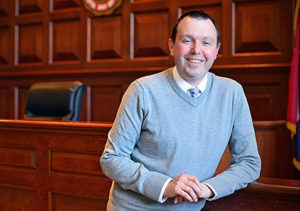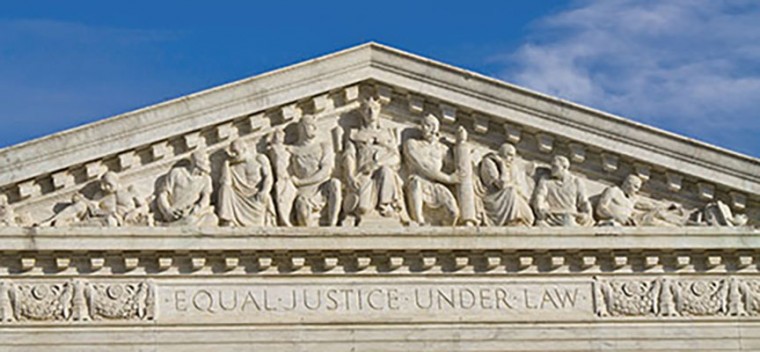A recent Supreme Court case that was expected to limit privacy laws actually has the potential to expand them, according to an expert on privacy law at Washington University in St. Louis.
“This is a big deal,” said Neil Richards, professor of law. “The surprising decision actually gives Congress a green light to allow consumers to sue corporations or online sites that violate their privacy rights or consumer protection laws.”
In the suit, Thomas Robins alleged that Spokeo, a “people search engine” site, published inaccurate information about his personal and professional life. Robins had sued the company under the Fair Credit Reporting Act (FCRA).

Spokeo argued that because its inaccurate statements were beneficial to Robins, there was no injury, and therefore it could not be sued by a consumer without violating a constitutional doctrine known as “standing.” The case had been seen as an opportunity for the Supreme Court to sharply limit Congress’ ability to give consumers so-called “private rights of action” to enforce their privacy and consumer protection rights in the courts.
Richards, along with several other leading privacy law and consumer protection scholars across the country, had submitted an amicus brief to the court in support of Robins. The brief argued that if the court sharply limited the FCRA under Spokeo’s theory, it could eviscerate congressional power to protect consumers from unfair business practices.
Many observers expected the court to do exactly that, and it did find for Spokeo; however, it ruled very narrowly on factual grounds, and sent the case back to the lower courts for further fact-finding.
The result of the case was “surprising, but gratifying to those of us who care about making sure we can have consumer protection laws for the digital age that work as well or better than the ones we enacted in the late twentieth century for physical products,” Richards said.
The court’s ruling means that it did not get to the issues briefed by Richards and the other law professors, but Richards was pleased by this result.
“Obviously, it’s nice when your work gets cited by courts, but we wrote our brief to guard against the worst-case scenario of the court taking Spokeo’s radical argument seriously,” he said. “The Court didn’t do that, and so we are quite happy with that result. Congress is now free to give consumers the rights they need to protect their privacy and other digital rights.”
Richards’ brief with the other law professors is available at: papers.ssrn.com/sol3/papers.cfm?abstract_id=2656482.
The case is available at: supremecourt.gov/opinions/15pdf/13-1339_f2q3.pdf.

Comments and respectful dialogue are encouraged, but content will be moderated. Please, no personal attacks, obscenity or profanity, selling of commercial products, or endorsements of political candidates or positions. We reserve the right to remove any inappropriate comments. We also cannot address individual medical concerns or provide medical advice in this forum.